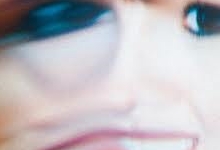
Tracks
When Saints Go Machine: "Add Ends"
(2011)
By Jonathan Wroble | 1 September 2011
As well known to ABBA apologists and Robyn devotees, pop sensibilities run deeply through Scandinavia’s genetic mapping, and their cyclical reappearance in the modern indie landscape maintains the region’s legacy as one of the most enduringly gratifying countries of musical import. The story is no different with Danish quartet When Saints Go Machine, who sport quirk and candor at once through the entirety of Konkylie—their second record of intriguingly artistic yet effortlessly immediate electropop. “Add Ends” closes the album, and rightly so: it’s the kind of majestic suite that could alternate eternally between its distinct time signatures and tempos if not for the commercial demands on song length.
The track derives beauty from its unpredictable and intoxicating crescendos, as well as from the meandering mojo of lead singer Nikolaj Manuel Vonsild, whose haunting delivery hints at androgyny, titters with odd emphases, and offers up mysterious (and occasionally indecipherable) lyrics. Vonsild is comfortable in both a quivering falsetto and a plaintive baritone, and his operatic vocals float comfortably above synthesized plucks, staccato cellos, and haloing background sounds. “I’m on pause / But everything goes on,” he sings in a contemplative, quiet moment, and just then the song accelerates into a chorus that equates rather enigmatically a dance floor to a murder scene. The thrust of the minimalist instrumental arrangement, especially the strings, serves as the rhythm to the track, and a few mid-song moments where everything cuts out except echoes—sort of an aural equivalent to leaping from a cliff in slow motion—make for rewardingly emotive listening.
And then there’s the possible Charlie Sheen reference. “Wish I could tell you I was winning,” sings Vonsild, slightly approximating Sheen’s sophomoric pronunciation of his catchword, “Let doctors tell me when I’m wrong.” Perhaps it’s unfair to assume an allusion to such low culture in the midst of as pristine a piece of pop music as “Add Ends”; but since the band makes topical mention of the faltering economy elsewhere on Konkylie, it’s not entirely out of the question. In any case, nothing can derail this song from being what it is: a wondrous sonic vessel captured in a glass bottle seemingly half its size.





